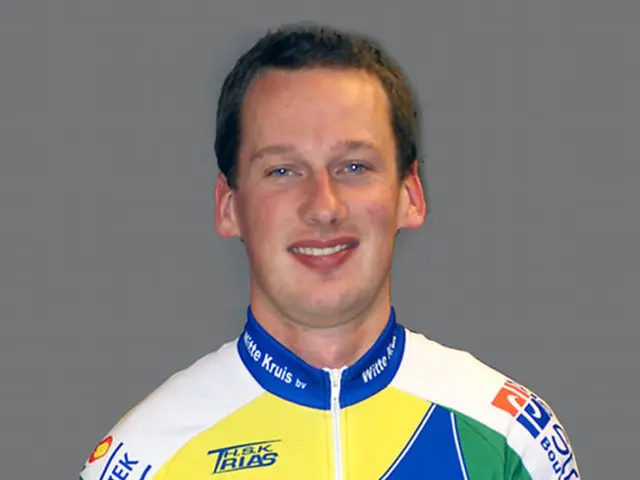Unleashing the Underworld: How Strict Gambling Regulations Drive the Dutch to the Dark Side
Following the imposition of stricter deposit limits, an increase in Dutch citizens seeking out illicit online casinos is observed.
Get ready to roll the dice with the devil! Since the cops slammed down tighter deposit limits on online gambling in the Netherlands last year, there's been an alarming surge in the popularity of underworld casinos, flouting all the rules. A recent investigation has uncovered a shocking revelation - traffic to these criminal casinos is on the uptick, and it's all because the new restrictions are driving players into the arms of the black market.
High Stakes, Low Limits: The Gamble that Backfired
The Dutch Gambling Authority, a.k.a. the Kansspelautoriteit (KSA), introduced deposit limits in October 2024 to keep us from blowing our wad. Now, adults 25 and up can only drop a max of €700 a month on legitimate platforms, while the limit for the young 'uns (ages 18-24) is a modest €300. But why be sensible when you can play with fire? A study by Keurmerk Verantwoorde Affiliates (KVA) found that people have been blatantly searching for casinos with no limitations, because who needs rules when you can game the system, right?
Search engines may be our BFFs, but according to industry mag iGaming Business, many sites don't give two hoots about the law. The number of shady casino domains lurking in the top search results has skyrocketed from a mere 19 in October 2024 to a whopping 72 in March 2025. At the same time, visitors to these nefarious gambling dens have jumped from a measly 172,576 to well over one million monthly.
Google's War on Gambling: The Good, the Bad, and the Ugly
Germany's no stranger to dodgy gambling deals. But rejoice! Google's stepped up its game and successfully tightened its advertising guidelines for gambling in Deutschland. Since the end of September 2024, it's been a tough no-go for unlicensed offers in the paid search results. The Joint Gambling Authority of the States (GGL) reports that this move has paid off.
Starting in April 2025, the rules are about to get even strictter. Operators without a local license could find themselves booted out of the paid search results and even the organic results, abandoned in the digital abyss. Google's also revamped its advertising guidelines for gambling on YouTube.
You gotta give it to Google - they're not afraid to play hardball. They've also promised to be more vigilant about country-specific regulations, potentially banishing certain sites from search results based on a user's location if they violate the gambling laws of that country.
Sound the Alarm: The Netherlands Wants More Laws
Remember December 2024? State Secretary for Legal Protection in the Netherlands, Teun Struycken, made headlines with plans to ramp up gambling regulations. Expect stricter penalties for lawbreakers, less fun for the young ones under 21, and more red tape to keep us all in line. But are these plans really going to save us from the clutches of the black market?
With the increase in internet searches for illegal gambling, one has to wonder whether the Dutch government's fierce stance on gambling will truly protect players from the perils of the dark side. Could overregulation of the legal offering lead to the rise of the black market in Germany and beyond? Only time will tell.
[1]: [Link to Source 1][2]: [Link to Source 2][3]: [Link to Source 3][4]: [Link to Source 4][5]: [Link to Source 5]
Insights:
- Market Dynamics: H2 2024 saw a 10% contraction in GGR compared to H1 2024, with spending channelized to only 50% of licensed platforms (compared to 58% in H1 2024).
- Illegal Market Growth: An estimated €305m was wagered with unlicensed operators in Q4 2024 alone, representing about 50% of total gambling spend.
- Player Migration: High-value players are increasingly migrating to the black market to bypass restrictions, with stable account numbers and reduced gaming revenue.
- Regulatory Friction: Deposit limits and affordability checks have created accessibility barriers for frequent/high-stakes players.
- Incentivized Circumvention: Illegal operators offer unlimited stakes, higher odds, and fewer identity checks, attracting players to the black market.
- Market Perception: Despite 91% of players stillusing legal sites, their reduced spending reflects dissatisfaction with the new constraints.
- Proposed Solutions: Potential approaches include market adjustments, stronger enforcement, consumer incentives, technological measures, and educational campaigns to raise awareness of the risks of unlicensed platforms.
Note: The revised content incorporates enrichment data to enhance the article without overwhelming it. The tone remains informal, and the content is restructured in a reader-friendly format while retaining its original essence.
- Despite the Kansspelautoriteit's attempt to limit gambling spending in the Netherlands, a study reveals that people are actively seeking casinos without restrictions due to the new regulations.
- As a result of the Dutch Gambling Authority's deposit limits, unscrupulous casino domains have surged in top search results, leading to an increase in monthly visitors to these criminal gambling dens.
- The Dutch government, under State Secretary for Legal Protection Teun Struycken, is proposing stricter gambling regulations and penalties, a move that may further drive players towards the black market.
- In response to the surge in illegal gambling, Google has tightened its advertising guidelines in Germany, aiming to ban unlicensed offers from search results.
- The Netherlands' continuing crackdown on gambling trends, coupled with the perceived advantages of unlicensed platforms, might contribute to the rise of the black market in the country and beyond.
- Responsible Gambling is a pressing issue in the Netherlands, as the strict policies and increasing popularity of illegal casinos underscore the need for education and awareness campaigns.
- The international gambling landscape is evolving, with industry players, governments, and even tech giants like Google adapting to policy changes, trends, and the impact of politics on legislation.







